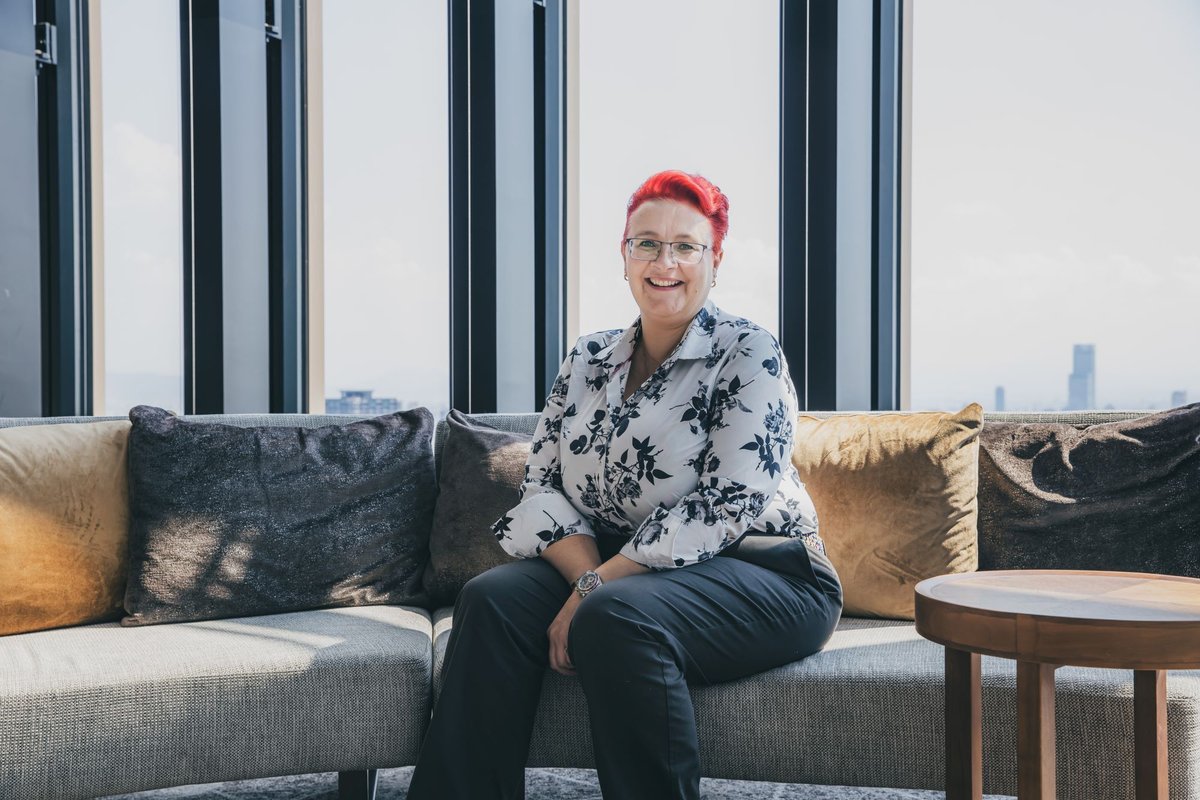
問題視される「詰め込み教育」NLCSの教育アプローチの違い
【English follows Japanese.】
前回に引き続き、インターナショナルスクール「North London Collegiate School Kobe(NLCS Kobe)」の池田浩八代表と、NLCS 海外校 教育戦略ディレクターのGwen Byrom(グゥエン・バイロム)さんの対談をお届けします。今回取り上げるのは「NLCSの教育方針について」。日本の教育現場で問題視されている「詰め込み教育」と比較しながら、話をお聞きしました。
↓ 前回の対談記事はこちら

NLCS 海外校 教育戦略担当。マンチェスター大学にて理学士号、ロンドン大学ゴールドスミス校でPGCE(教育修士資格)、および教育学の修士号を取得。その後イギリス名門校 で副校⻑・校⻑代理などの重役を果たすなど、教育部門で20年以上の輝かしい経歴を持つ。現在、NLCSグループの教育戦略ディレクターを務める。
生徒が創造的になって疑問を抱き
問題を解決するその経験こそが重要
池田浩八代表(以下、浩八代表):ひたすら暗記して知識量を増やすことに重きをおく日本の「詰め込み教育」は、教育現場でたびたび議論されています。NLCS(英国本校)は過去20年の間、GCSE、A-Level、IB(国際バカロレア)ディプロマの各試験においてイギリス国内トップクラスの評価を得ており、2023年度のIBDP(国際バカロレア・ディプロマプログラム)のスコアでは英国第1位となった学校です。そのIBの教育は、多様な文化の理解と尊重の精神を通じて、子供たちが自分自身のものの見方、文化、アイデンティティーを振り返り、国際的な視野を育むことを目指しています。IBの教育方針のメリットについてグゥエンさんはどのようにお考えでしょうか?
グゥエン・バイロム(以下、グゥエン):もちろん知識を持つことは大切ですが、知識はそれをどう使うかを知らなければ役に立ちません。生徒たちが知識をつけるために学ぶ、ということは前提として、私たちがさらに重要視しているのは、生徒が創造的になってあらゆることに疑問を抱き、好奇心を持ってそれらのことを学んでいくこと。正しい答えを得ることではなく、彼らが何か問題に直面した時に、自分で解決するという経験とそこから得られる自信こそが重要なのです。たとえ生徒の答えが間違っていても、どのようにして解決策を見つけられるのか?という視点を大事にしてもらいたい。間違えることから学ぶことはたくさんあると思っています。
私たち大人が生徒たちにたくさんのことを教えれば、生徒たちは色々なことを知り、学ぶことができます。ですが、その学んだことや自分の考えを、彼らは実生活や目の前にある課題に対してどのように生かしたら良いかがわからないというのが現状です。だからこそ、生徒たちひとりひとりが創造的で考える人になり、自ら学ぶことに喜びを感じることがとても重要で、生徒たちは「教師は常に答えを教えてくれるのだ」という期待をしてはいけません。彼らが自ら考える力をつけるために、教師は生徒に質問を投げかけ、その場で自ら解決してもらう機会を作っていくのです。これは教師が生徒にたくさんの情報を与える”詰め込み教育”とはまったく異なります。
精神と身体の両方を発達させることを重視するIBの初等部カリキュラム「PYP(プライマリー・イヤーズ・プログラム)」では特にその機会が与えられると思います。PYPの生徒の学習は質問を中心に構成されており、たとえば1年生は「世界と時間の中での私の位置はどこか」という質問に対して、時間・歴史・地理など互いに関連し合うすべてのものについて学び、自分が誰で、どこにいて、どのような時代に生きているのかという感覚を身に付けます。これは、生徒に大量の知識を暗記させずに学ばせる、本当にすばらしい方法です。

生徒たちに世界中の人々とつながる機会を与えること
浩八代表:僕たちが教わってきた勉強方法と根本的に違いますよね。そもそも、IBのそういった考え方はどのようにして生まれたのでしょうか?
グゥエン:第二次世界大戦後、若い人への教育には、グローバルな理解、すべての人への敬意、そして創造的で独立した思考者であるという感覚を育む教育方法が必要だという、教育者たちの共通意識がありました。そうすれば、世界は再び同じ状況に陥らないと考えたからです。IBはその願望を念頭に置いて開発されました。
そして、このバランスの優れたPYPカリキュラムによって問題解決能力を身につけた学生たちは、PYPを受けていない学生に比べて就業率もはるかに高く、秀でたスキルを身につけているという研究が数多くあります。彼らは失敗した時に対処する力があり、挑戦することに常に前向きで、その挑戦の中で自ら問いを投げかけ、学び、成長し続けているのです。
浩八代表:興味深いお話ですね。第二次世界大戦前の教育は、第二次世界大戦後とは違っており、その教育は私だけでなくおそらく私たち全員にとって大きな影響を与えています。長い道のりではありましたが、IBのように世界的な動きに適応したものではありません。
グゥエン:IBにはそれがあり、私たちNLCSにとって、グローバルな人材を育てることが私たちの関心事です。何年も前に初めて海外校を開校したとき、私たちが大事にしたことは、生徒たちに世界中の人々とつながる機会を与えること。そして、それはアイデアや経験を共有できることから、私たちにとっても教師にとっても非常に興味深いことの一つでした。

海外からも注目される世界基準の教育を目指す
浩八代表:国によって教育方針やその考え方が異なるのは、それぞれの国の歴史や国の成長、当時の世界でのパワーバランスなど様々なことが影響しているのですね。
グゥエン:日本だけでなく、多くのアジアの国では、生徒たちが教師に異議を唱えるときは、教師が何か間違いを犯したと思ったときだと言われています。自分が思ったことをそのまま伝えることは良くないのだ、と思い込み、完全に沈黙している生徒もいます。ですので、私が教室に入って静かだと感じるときは心配になります。私は、騒がしく忙しく、子供たちが楽しんで興奮している教室が好きです。そんな好奇心あふれる子供たちの姿を見られることが私が教師になった理由でもあります。
以前浩八さんがおっしゃっていたように、日本が変化の必要性を認識しているというのは興味深いことですが、問題はその変化をどう実現するかです。そして、教育こそがそれを実現する唯一の方法だと思います。
浩八代表:「NLCS Kobe」では、NLCS本校が大切にしている生徒の意欲をかき立てる“探究型教育”をベースにした教育方針に加え、日本人としてのアイデンティティも大切に、生徒の個性を磨く六甲山の大自然を生かした独自カリキュラムを採用するなど、海外からも注目される世界基準の教育を目指していきたいと考えています。

次の記事は、池田浩八代表とグゥエン・バイロムさんの対談の最終章となります。代表が本スクールを開校するに至った「日本人という確固たるアイデンティティを持って世界を舞台に活躍できる人材を育てたい」という熱い想いについて、グゥエンさんと一緒にお話しいただきます。お楽しみに!
●HP https://nlcskobe.jp/
●Instagram https://www.instagram.com/nlcskobe/
●LinkedIN https://jp.linkedin.com/company/north-london-collegiate-school-kobe
‘Cram Education’ - How the educational approach from NLCS is different
Following on from our previous post, we bring you a conversation between Kohachi Ikeda, CEO, and Gwen Byrom, Director of Education Strategy for North London Collegiate School (NLCS) international schools. This time, we will be discussing "NLCS' educational policy." We asked them about it, comparing it to the "cramming education philosophy" that is considered problematic within Japanese educational.
*Click here for the previous article.

NLCS international School Education Strategy Director. Received a Bachelor of Science from the University of Manchester, a PGCE (Postgraduate Diploma in Education) and a Master of Education from Goldsmiths, University of London. After that, she held senior roles such as Vice Principal and Principal at prestigious schools
The experience of students being creative, asking questions and solving problems is key.
Kohachi Ikeda:Japan's "cramming education"approach that places emphasis on memorising and increasing knowledge is often debated in the field of education. NLCS (UK main campus) has been ranked among the top schools in the UK for GCSE, A-Level, and IB (International Baccalaureate) Diploma exams for the past 20 years, and is the number one school in the UK for the 2023 IBDP (International Baccalaureate Diploma Programme) score. The IB education aims to foster an international perspective by encouraging children to reflect on their own perspectives, cultures, and identities through a spirit of understanding and respect for diverse cultures. What do you think about the benefits of the IB education policy?
Gwen Byrom:Of course, it is important to have knowledge, but knowledge is useless if you don't know how to use it. Assuming that students learn to gain knowledge, what we place even more importance on is for students to be creative, question everything, and learn about these things with curiosity. It is not about getting the right answer, but the experience of solving a problem by themselves when they are faced with it and the confidence they gain from it that is important. Even if a student's answer is wrong, how can they find a solution? I want them to value this perspective. I believe there is a lot to learn from making mistakes.
If we adults teach students a lot of things, they will know and learn a lot. However, the reality is that they do not know how to apply what they have learned and their own ideas to real life or the problems they face. That is why it is so important for each student to become a creative thinker and to enjoy learning on their own, and students should not expect that "teachers will always tell them the answers." In order for them to develop the ability to think for themselves, teachers should ask questions and create opportunities for them to solve problems on the spot. This is completely different from the "cramming education" where teachers give students a lot of information.
I think this is especially true in the IB Primary Years Programme (PYP), which places emphasis on developing both the mind and the body. Students in the PYP are structured around questions, and in first grade, for example, students are asked, "Where am I in the world and in time?", which leads them to learn about time, history, geography, and all the interconnected things to get a sense of who they are, where they are, and what time period they live in. This is a really great way to get students to learn without having them memorise huge amounts of information.

Giving students the opportunity to connect with people from all over the world
Kohachi:It's fundamentally different from the way we've been taught to study. But how did the IB's approach to studying English come about in the first place?
Gwen Byrom:After World War II, educators shared a common vision that educating young people needed to foster global understanding, respect for all people, and a sense of being creative and independent thinkers, so the world would never find itself in that situation again. The IB was developed with that aspiration in mind.
And there's plenty of research that shows that students who have acquired problem-solving skills through this well-balanced PYP curriculum have much higher employment rates and better skills than students who don't take the PYP. They're better able to handle failure, they're always willing to take on challenges, and they continue to question, learn, and grow from those challenges.
Kohachi:Interesting. Education before WWII was different from after WWII and it has had a big impact on me and probably all of us. It's a long way, but it's not adapted to the global movement like IB is.
Gwen:IB has that, and for us at NLCS, it is our interest to develop global talent. When we first opened our overseas school many years ago, one of the things we focused on was giving our students the opportunity to connect with people from all over the world. And that was one of the things that was very interesting for us and for the teachers, because we could share ideas and experiences.

Aiming for world-class education that is attracting attention from overseas
Kohachi:The differences in educational policies and thinking from country to country are influenced by various factors, such as each country's history and growth, and the power balance in the world at the time.
Gwen:In Japan, and in many Asian countries, it is said that when students disagree with their teachers, it is because they think the teacher has made a mistake. Some students remain completely silent because they believe it is not okay to express their thoughts as they are. So when I walk into a classroom and I see silence, I worry. I like classrooms that are noisy and busy, where the kids are having fun and excited. Seeing these curious kids is why I became a teacher.
It is interesting that Japan recognizes the need for change, as Kohachi said before, but the question is how to make that change happen. And I think education is the only way to make it happen.
Kohachi:At NLCS Kobe, in addition to the educational policy based on inquiry-based education that stimulates student motivation, which is a priority at the NLCS main school, we also value our Japanese identity and adopt a unique curriculum that makes use of the natural beauty of Mt. Rokko to hone the individuality of our students, aiming to provide a world-class education that will attract attention from overseas.

The next post will be the final chapter of the conversation between Kohachi Ikeda and Gwen Byrom. Together with Gwen Byrom, Kohachi Ikeda will talk about his passion for opening this school: "I want to nurture talented people who can play an active role on the world stage with a firm identity as Japanese people." Please look forward to it!
●HP https://nlcskobe.jp/
●Instagram https://www.instagram.com/nlcskobe/
●LinkedIN https://jp.linkedin.com/company/north-london-collegiate-school-kobe
